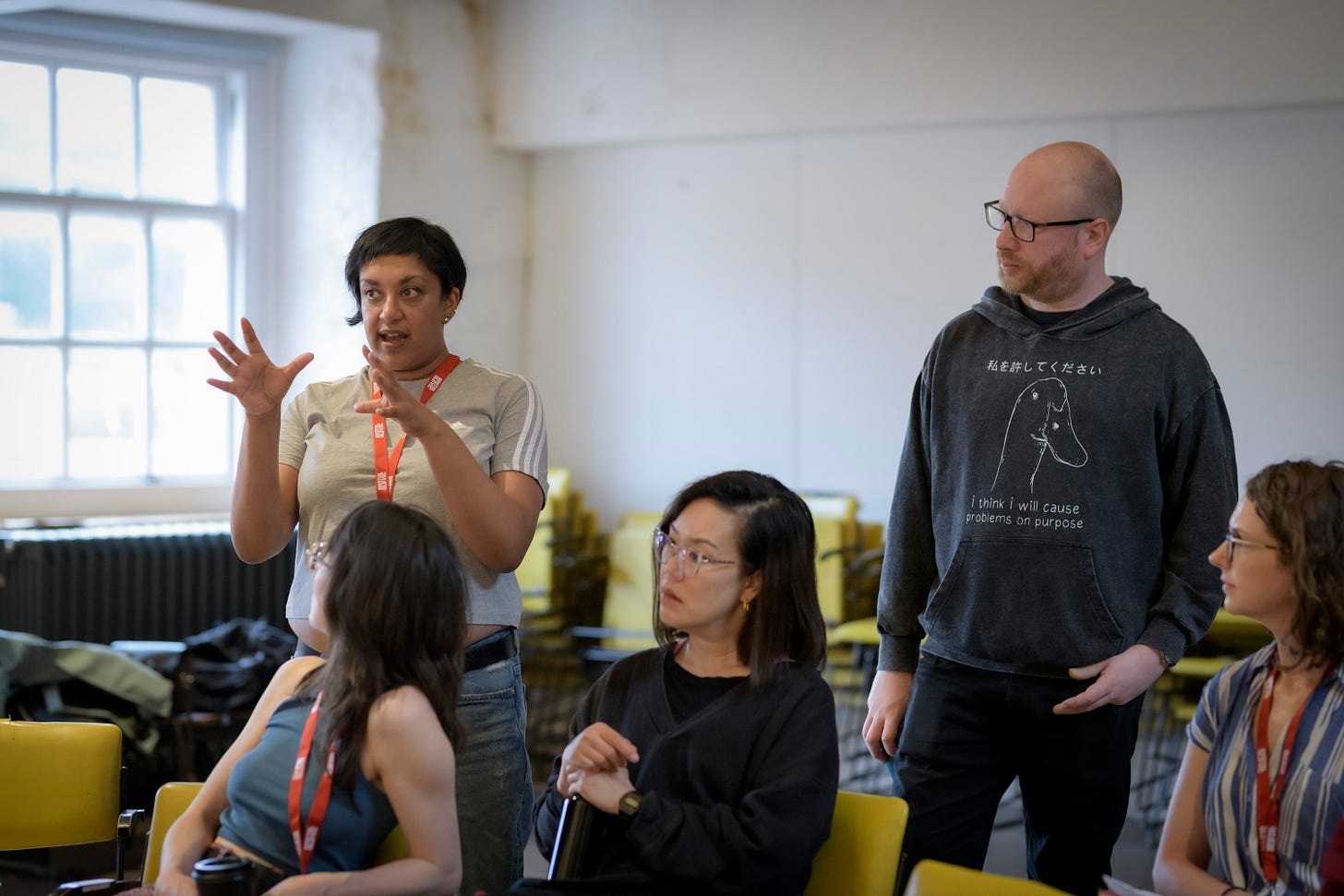Science-fiction to break your heart
Timothy X Atack and Tanuja Amarasuriya on love stories, genre fiction, ghosts, tapes... and why theatres should embrace nerds
By Ben Kulvichit
Timothy X Atack and Tanuja Amarasuriya say they were once told by a friend that “almost everything we do contains love and ghosts.” This seems to me an apt summation of their impressively varied body of work together, which over the past two decades has encompassed projects such as an existential sci-fi horror play, an electronic musical about grief, an improvised gig created from field recordings of the place it’s performed in, a short film about a man who records his dreams onto VHS tapes, and now DELAY, a new “sci-fi heartbreaker” which premieres with a two-and-a-half week run at Bristol Old Vic from 19 June.
As artistic and life partners living in Bristol, Amarasuriya and Atack’s collaborations over the years have been framed under the company name Sleepdogs, which for them is less an artistic moniker than a practical framework for them to produce their work as freelancers. In fact, they’ve always, as Atack puts it, been allergic to “branding.” “It’s not a company model,” Amarasuriya elaborates; “it was never the idea for Sleepdogs to have an identity in that way.” Whilst they insist on a stylistic and formal restlessness, their roles within the collaboration are clearly defined: Atack writes and composes, and Amarasuriya directs. “People often assume we are a devising company, and that became a bit of a hindrance. There was always an assumption of some kind or another about what our work would be like.”
It’s perhaps understandable that people get confused. I’ve followed Sleepdogs’ output over the past eight years I’ve lived in Bristol, seeing their shows, listening to their EPs and digesting the archive on their website (which, by the way, is one of my favourite artist websites out there – the notebook section is full of great writing about theatre and process). What I admire most about their work is the way that it so successfully straddles worlds.
Their style, as much as they might resist being branded, feels unmistakably distinctive within the landscape of theatremaking today: the result of a magpie collection of influences which includes the formal languages of live art and electronic music, and storytelling influences from genre fiction — particularly science fiction. “Our practices have developed from being conscious audience members and nerds,” says Amarasuriya. Atack agrees: “I’m just writing fan fiction all the time, basically.”
SLEEPDOGS’ FIVE BIGGEST INFLUENCES
Amarasuriya: We joke that Tim basically does a new version of Krapp’s Last Tape in every play he writes. Our first show together, Astronaut, was constructed around an 18 minute long sound piece recorded on a dictaphone.
Ben Kulvichit: And DELAY is based around voice notes isn’t it?
Atack: It is, yes! I’ve got to the stage now where I’m kind of proud of it.
Krapp’s Last Tape is also, by the way, arguably a work of speculative fiction. It’s on the cusp of being sci-fi because when it was written, magnetic tape had only been around for about a decade or so. So what it imagines – a whole life collected as audio diaries on spools of tape – has got to be set in the future…
Amarasuriya and Atack’s new show, DELAY, tells the story of an astronaut on a solo mission to what will hopefully become the first ever off-world human colony. “He is going to die out there alone,” Atack explains, “because his body is also going to seed the planet and make it habitable for future colonists who may or may not come along. It’s a hopeful act, his death out there.” The play unfolds through a series of voice messages between the astronaut and his husband on Earth. The snag: travelling close to the speed of light means that time is moving differently for the two. Sixty days for the astronaut is maybe the remainder of his husband’s life.
Keep reading with a 7-day free trial
Subscribe to Exeunt to keep reading this post and get 7 days of free access to the full post archives.






